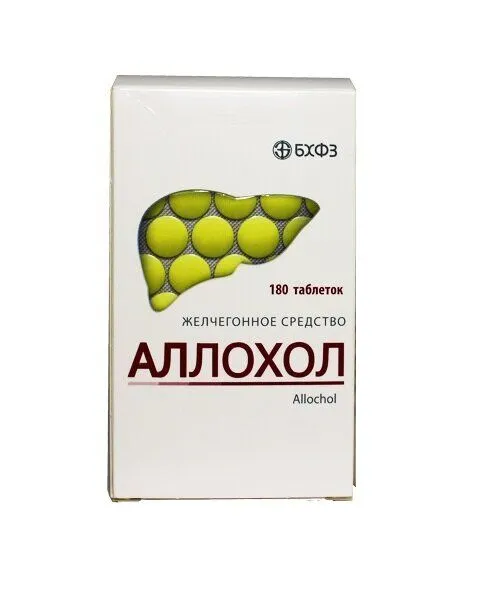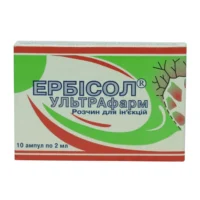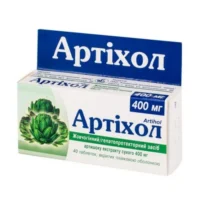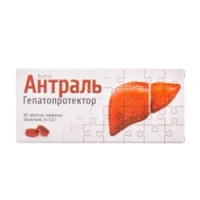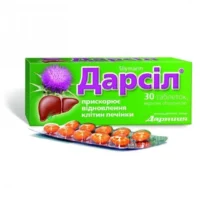Description
Allochol (Bile Dry) Coated Tablets №180
Composition
Allochol tablets contain bile extract and garlic powder as active ingredients. Other excipients include solid fat, silicon dioxide, and gelatin.
Mechanism of Action
Allochol tablets work by exerting hepatoprotective and choleretic effects. The bile extract enhances bile secretion, aiding in digestion and liver function. Garlic powder contributes antioxidant properties and supports liver health.
Pharmacological Properties
The active ingredients in Allochol tablets improve bile secretion, promote liver detoxification, and support overall liver function.
Indications for Use
Allochol tablets are indicated for improving digestion and liver function. They are commonly used to treat digestive disorders and support liver health.
Contraindications
Avoid taking Allochol tablets if you are allergic to any of the ingredients. Pregnant and breastfeeding women should consult a healthcare professional before use.
Side Effects
Common side effects may include gastrointestinal discomfort. If you experience any adverse reactions, discontinue use and seek medical advice.
Usage Instructions
The recommended dosage is 1-2 tablets three times a day after meals. Swallow the tablets whole with a glass of water. Do not crush or chew the tablets.
Benefits Compared to Analogues
Allochol tablets offer a combination of bile extract and garlic powder for improved liver function and digestion, setting them apart from single-ingredient products.
Suitable Patient Groups
Allochol tablets are suitable for adults, including the elderly, and should be used with caution in children under medical supervision.
Storage Conditions and Shelf Life
Store Allochol tablets in a cool, dry place away from direct sunlight. Keep out of reach of children. Check the expiration date and do not use expired tablets.
Packaging Description
Allochol tablets are coated and come in a package of 180 tablets for convenient use and storage.
Scientific Evidence
Studies have demonstrated the efficacy of bile extract and garlic powder in improving liver function and supporting liver health. Bile acids have shown benefits in reducing liver damage, while garlic has been associated with liver detoxification.
Additional Information
Before starting any new medication, consult your healthcare provider, especially if you have underlying medical conditions or are taking other medications. Allochol tablets are not intended to diagnose, treat, cure, or prevent any disease.

